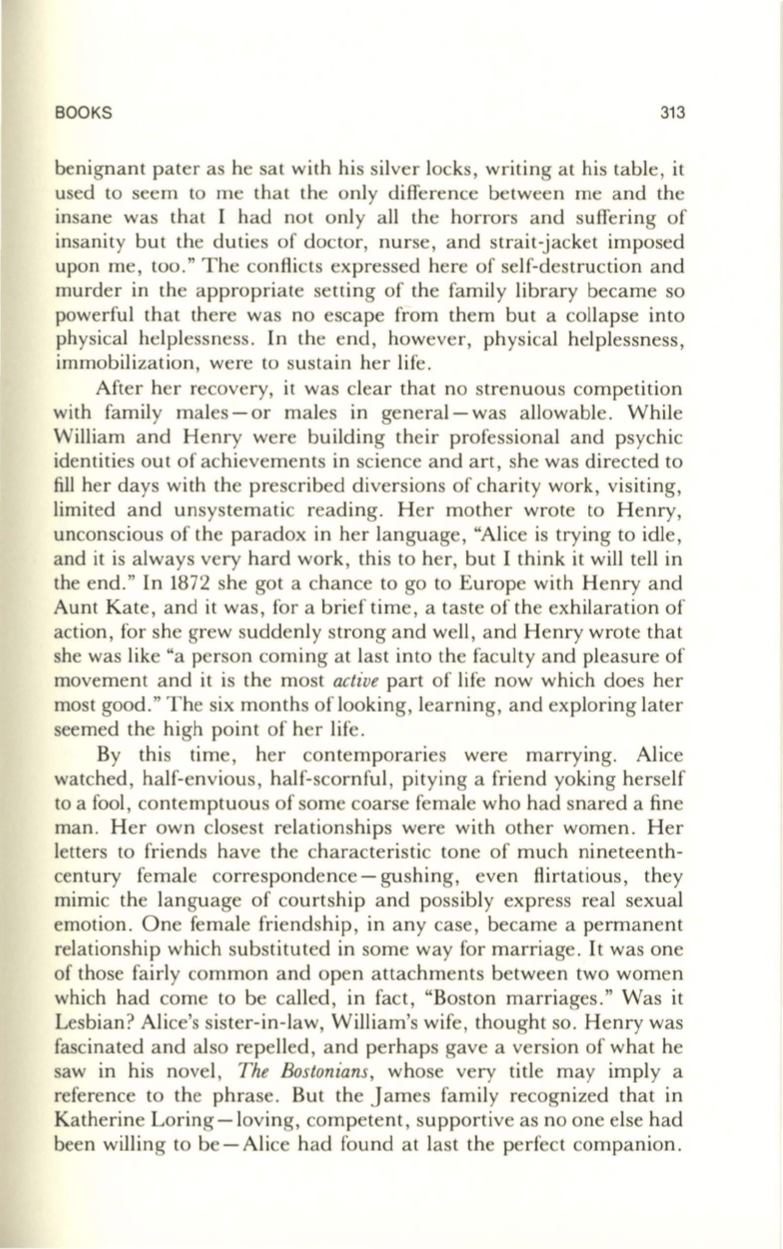
BOOKS
313
benignant pater as he sat with his silver locks, writing at his table, it
used to seem to me that the only difference between me and the
insane was that I had not only all the horrors and suffering of
insanity but the duties of doctor, nurse, and strait-jacket imposed
upon me, too." The conflicts expressed here of self-destruction and
murder in the appropriate setting of the family library became so
powerful that there was no escape from them but a collapse into
physical helplessness . In the end, however, physical helplessness,
immobilization, were to sustain her life.
After her recovery, it was clear that no strenuous competition
with family males-or males in general-was allowable. While
William and Henry were building their professional and psychic
identities out of achievements in science and art, she was directed to
fill her days with the prescribed diversions of charity work , visiting,
limited and unsystematic reading. Her mother wrote to Henry,
unconscious of the paradox in her language, "Alice is trying to idle,
and it is always very hard work, this to her, but I think it will tell in
the end ." In 1872 she got a chance to go to Europe with Henry and
Aunt Kate, and it was, for a brief time, a taste of the exhilaration of
action, for she grew suddenly strong and well, and Henry wrote that
she was like "a person coming at last into the faculty and pleasure of
movement and it is the most
active
part of life now which does her
most good." The six months ofJooking, learning, and exploring later
seemed the high point of her life.
By this time, her contemporaries were marrying. Alice
watched, half-envious, half-scornful, pitying a friend yoking herself
to a fool, contemptuous of some coarse female who had snared a fine
man. Her own closest relationships were with other women . Her
letters to friends have the characteristic tone of much nineteenth–
century female correspondence - gushing, even flirtatious, they
mimic the language of courtship and possibly express real sexual
emotion. One female friendship, in any case, became a permanent
relationship which substituted in some way for marriage .
It
was one
of those fairly common and open attachments between two women
which had come to be called, in fact, "Boston marriages." Was it
Lesbian? Alice's sister-in-law, William's wife , thought so. Henry was
fascinated and also repelled, and perhaps gave a version of what he
saw in his novel,
The Bostonians ,
whose very title may imply a
reference to the phrase. But the James family recognized that in
Katherine Loring-loving, competent, supportive as no one else had
been willing to be-Alice had found at last the perfect companion.


